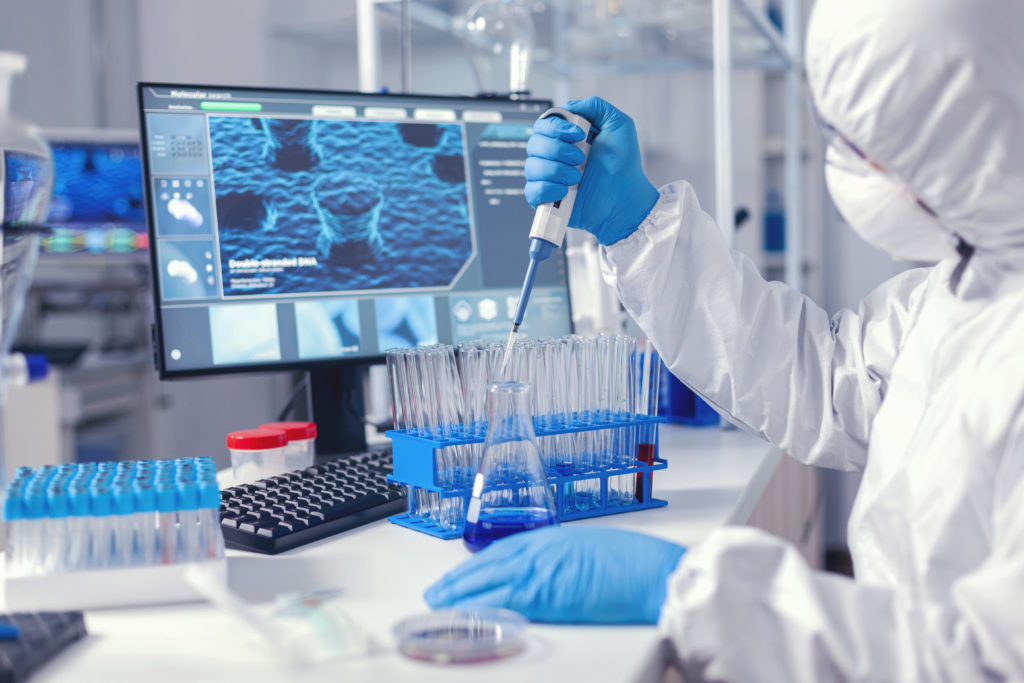CONTACT
We will reply as soon as possible.
Enevia Health, LLC
30 N Gould Ste N, Sheridan, WY 82801, USA
The immune system is the set of mechanisms that our body has to defend itself against foreign agents such as viruses, bacteria and fungi. A LYMPHOCYTARY PANEL is a blood test that allows us to evaluate how the immune system is working. This test allows us to measure the number and ratio of different types of white blood cells (lymphocytes) in the blood, which are responsible for fighting infection.



The extended study of the immunophenotype is available throughout Spain. Buy this test on the Enevia Health website and save money.
The analysis is done with a venous blood sample Enevia Health Neurodevelopmental members have a discounted price to do this test
118 euro
If you are interested in buying this test, send an email to info@eneviahealth.com and we will tell you how to proceed.
Below, we summarize the content of some studies that suggest a relationship between alterations of the immune system and autism:
1. Study «Autoantibodies to brain in sera of children with autism» published in 2011 by the team of Dr. Robert Naviaux. This study looked at brain antibody levels in children with autism. The results suggested that children with autism might have an autoimmune response against the brain, which could contribute to the development of the disorder.
link: https://naviauxlab.ucsd.edu/science-item/autism-research/
2. Study «Alterations in innate immune response in children with autism spectrum disorders» published in 2013 by the team of Dr. Andrew Zimmerman. This study looked at the levels of certain immune system cells in children with autism. The results suggested that children with autism might have abnormally high levels of certain immune cells, which could contribute to the pathology.
link: https://www.ncbi.nlm.nih.gov/pmc/articles/PMC5143489/
3. Study «Immune dysregulation in children with autism spectrum disorders» published in 2014 by the team of Dr. Andrew Zimmerman. This study looked at the levels of certain immune system cells in children with autism. The results suggested that children with autism could have abnormal levels of T, B, and NK lymphocytes, and that these could be the cause of the pathology. Study «Elevated immune response in the brain of children with autism» published in 2015 by the team of Dr. Paul Ashwood. This study looked at the levels of certain inflammatory markers in children with autism. The results suggested that children with autism might have abnormally high levels of certain inflammatory markers, which could contribute to the pathology.
link: https://www.ncbi.nlm.nih.gov/pmc/articles/PMC8955336/
4. Study «Elevated immune response in the brain of children with autism» published in 2017 by the team of Dr. Paul Ashwood. This study looked at the levels of certain inflammatory markers in children with autism. The results suggested that children with autism might have abnormally high levels of certain inflammatory markers, which could contribute to the pathology.
link: https://www.ncbi.nlm.nih.gov/pmc/articles/PMC2770268/
📌 You will find more scientific information on the different Enevia Health platforms.
Website: https://www.eneviahealth.com
Youtube: https://www.youtube.com/c/EneviaHealthSL
Facebook: https://www.facebook.com/eneviahealth
#autism #neurodevelopment #infant neurodevelopment 1TP4Infant tautism
We will reply as soon as possible.
30 N Gould Ste N, Sheridan, WY 82801, USA
Our groups are the ideal platform to learn and share your scientific concerns about neurodevelopment issues
*Our purpose is informational only, it is not intended to be a substitute for medical advice, diagnosis or treatment.
We are working on our website. For any queries, you can contact our customer service team at atencionalcliente@eneviahealth.com